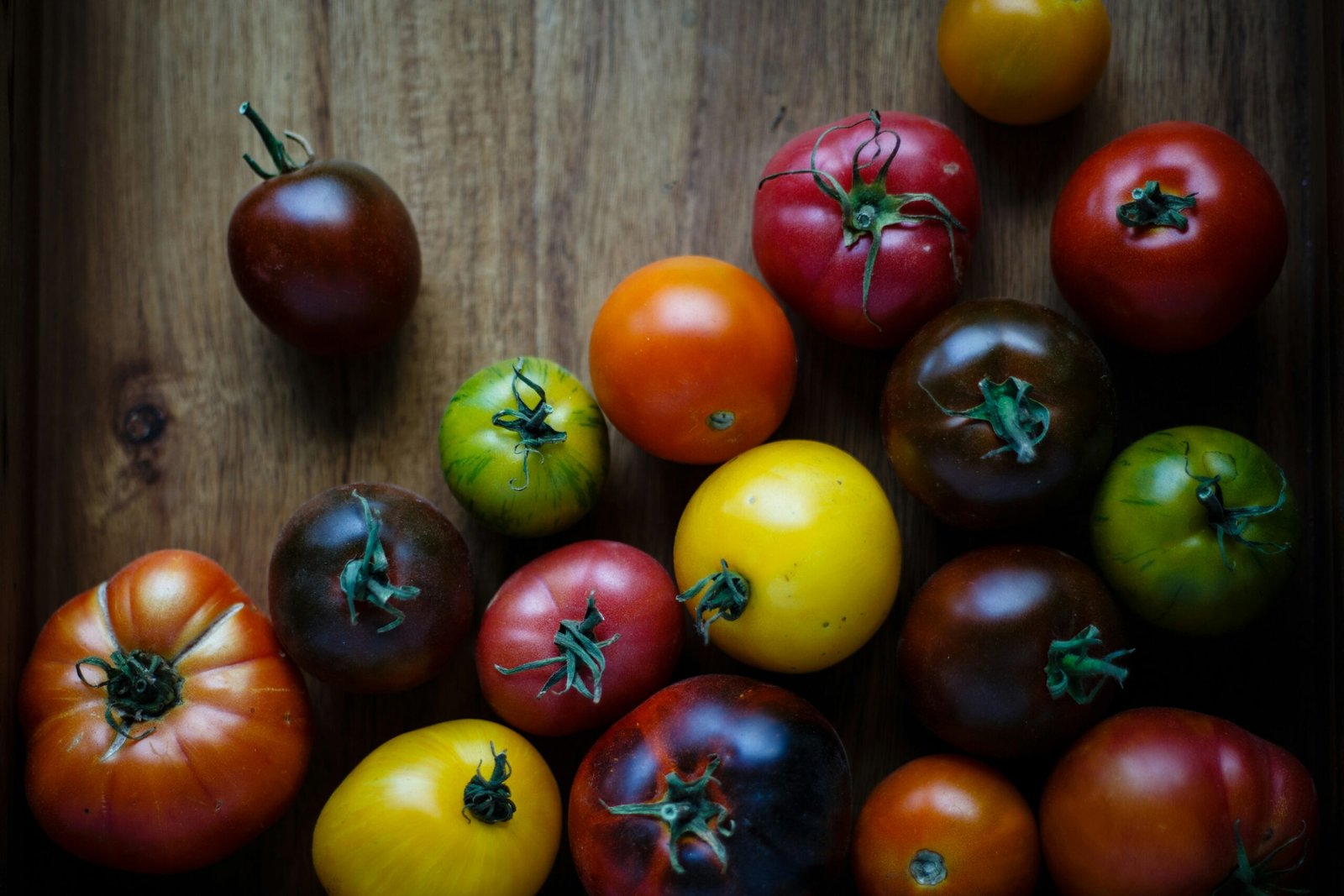Introduction to Tarek’s Vision
Tarek, a dedicated chef hailing from Tunisia, embodies the essence of resilience and compassion, traits that are deeply rooted in his personal and cultural experiences. Growing up in a modest household, Tarek was often surrounded by the struggles of poverty, which instilled in him a profound understanding of the importance of food as not just sustenance, but as a source of comfort and community. His culinary journey began in his grandmother’s kitchen, where the aromatic herbs and spices of traditional Tunisian cuisine ignited his passion for cooking. This early exposure to the culinary arts sparked an unwavering ambition in Tarek to utilize his skills to effect positive change in society.
Over the years, Tarek identified a pressing need within his community: the growing number of homeless individuals who often faced the harsh realities of hunger and social isolation. This observation ignited a fire within him to create a sustainable model of nourishment and support for those less fortunate. His vision centers on providing nutritious meals that not only satisfy the palate but also restore dignity to those who may feel forgotten by society. With a mission to bridge the gap between food and fellowship, Tarek started organizing community kitchens and meal drives, transforming his vision into actionable initiatives.
Through partnerships with local charities and volunteers, Tarek has been able to expand his reach. His dedication to addressing food insecurity has helped to not only serve meals but also foster an environment of inclusivity and respect. He believes that everyone deserves access to healthy food and that through collective efforts, communities can rise above adversity. Tarek’s journey is a testament to the powerful impact one person can have when motivated by love and a desire to uplift others.
Meeting Nia: The Kenyan Social Entrepreneur
Nia, a prominent social entrepreneur from Kenya, has dedicated her life to advancing her community through sustainable projects that address critical social issues. Hailing from a humble background, she experienced the challenges of food insecurity firsthand, which ignited her passion for creating solutions that empower local communities. Over the years, Nia has focused on transforming lives by implementing programs that promote agricultural sustainability, women’s empowerment, and education.
During Tarek’s visit to Kenya, he encountered Nia at a local initiative centered on urban farming. Her innovative approach to integrating agricultural practices into community living captivated Tarek. Here, Nia utilized her expertise to teach families how to grow their own food using limited resources, thereby reducing dependence on external food supplies. Her initiative not only addressed nutritional deficiencies but also fostered a sense of community and resilience among participants.
The chemistry between Tarek and Nia was palpable from their first interaction. Tarek was impressed by Nia’s unwavering commitment to her work and her capacity to inspire those around her. Their shared vision of sustainable development and community service paved the way for a promising partnership. As they discussed future projects, Nia’s insights into local customs and agricultural practices complimented Tarek’s background in international development, creating a robust foundation for collaboration.
Nia’s story exemplifies how a single individual can impact a community through determination and innovative thinking. Her journey underscores the importance of social entrepreneurship in fostering sustainable development and enhancing food security. As Tarek and Nia prepare to embark on their collaborative initiatives, their combined expertise holds the potential to effect significant positive change in the communities they aim to serve.
The Birth of the Community Kitchen
The journey of Tarek and Nia toward establishing a community kitchen began with a shared vision of nourishing their local area through accessible, nutritious meals. The initial planning phases were marked by numerous brainstorming sessions, where they identified the needs of their community and the gaps in existing food distribution methods. Their aim was not solely to provide food but to create a supportive environment where individuals could come together to learn, cook, and share.
However, translating their vision into reality was fraught with challenges. One of the most significant hurdles was securing funding. Tarek and Nia approached this issue by organizing community meetings to raise awareness and garner support. They reached out to local businesses, food suppliers, and nonprofit organizations to explain their mission, ultimately forming key partnerships that would be essential in achieving their goals.
In addition to financial challenges, logistical issues arose regarding the location and operation of the kitchen. After a thorough search, they found a suitable space that needed renovation. They engaged with local volunteers to assist with the transformation process, fostering a sense of community ownership over the kitchen. This collaboration proved vital as community members felt invested in the project, thus enhancing its legitimacy and support.
Throughout this journey, Tarek and Nia realized the importance of involving local stakeholders, including city officials and health inspectors, to ensure compliance with regulations. By obtaining their guidance and support, they mitigated potential obstacles and built strong relationships that would aid in the sustainability of the community kitchen. This initiative continues to thrive on the foundation of collaboration and the dedication of those who believe in the power of shared meals to unite and nourish their community.
Creating Nourishing Meals: A Fusion of Cultures
Tarek and Nia have harnessed the power of their diverse cultural backgrounds to craft nourishing meals that resonate with both tradition and health. Their community kitchen stands as a vibrant celebration of heritage, where fresh, local ingredients take center stage. The emphasis on utilizing seasonal produce not only supports local farmers but also enhances the flavors and nutritional value of the dishes prepared. This farm-to-table approach ensures that every meal serves as a tribute to the land and the labor involved in feeding the community.
The culinary offerings in Tarek and Nia’s kitchen reflect their journeys and the cultures they embody. For instance, they may prepare a Moroccan tagine, rich with spices and locally sourced vegetables, which is then complemented by a twist of Mediterranean grains. This fusion highlights not only the creativity involved in contemporary cooking but also preserves the essence of traditional recipes. Another example is the incorporation of fresh herbs like cilantro and parsley, which enhance both the flavor profiles and nutritional benefits of dishes such as herbed quinoa salad infused with citrus and olive oil.
Furthermore, Tarek and Nia often feature dishes that celebrate the culinary practices of their respective cultures, such as Nia’s aromatic Indian dal made from lentils and spices, paired with Tarek’s classic Middle Eastern pita breads. This fusion not only offers a nourishing meal to the community but also creates a space for cultural exchange and understanding. Guests are encouraged to share their food stories, contributing to a rich tapestry of flavors and experiences that define the kitchen. Each dish serves not only as a meal but as a reflection of shared aspirations for health and unity, encapsulating the spirit of collaboration and celebration that Tarek and Nia deeply value.
Building Community: More than Just Meals
The community kitchen established by Tarek and Nia exemplifies a transformative approach to addressing not only food insecurity but also the broader social challenges faced by individuals experiencing homelessness. Beyond merely providing meals, the initiative serves as a welcoming gathering space where individuals can come together, share experiences, and foster connections. This social enterprise has emerged as a crucial hub for those in need, offering a sense of belonging that extends far beyond the kitchen’s doors.
At the heart of this community kitchen lies the belief that sharing a meal can be a powerful catalyst for change. Volunteers and those experiencing homelessness engage with one another, turning what could be a solitary experience into a vibrant community event. The interactions that occur within this space facilitate the development of friendships and support networks, which are vital for building resilience among individuals who often feel isolated. Such connections can lead to new opportunities, as community members begin to rely on one another for not only companionship but also assistance with resources and services that may improve their circumstances.
This initiative encourages participants to participate actively, whether by preparing meals, serving food, or simply sharing stories over a communal table. The act of breaking bread together fosters trust and understanding, creating a nurturing environment where all voices are valued. The experience emphasizes the importance of human connection, demonstrating that community kitchens can play a monumental role in dismantling barriers, prejudice, and stigma associated with homelessness.
Ultimately, Tarek and Nia’s community kitchen illustrates how a focus on nurturing relationships can reshape narratives surrounding food security. Through inclusive practices and a commitment to fostering a sense of community, they have established a model that integrates nourishment with dignity and support, profoundly impacting the lives of individuals and the neighborhoods they serve.
Testimonials from the Heart
The impact of Tarek and Nia’s community kitchen extends far beyond the provision of meals; it fosters a sense of belonging and hope among residents. For many, the kitchen has become a refuge, a place where individuals can share their stories and support one another through their trials. One participant, Maria, shared, “Before I found the community kitchen, I struggled to put food on the table for my children. Now, not only do we enjoy nutritious meals, but I have also formed friendships that lift my spirits.” Maria’s experience illustrates the profound connection that can develop within a community centered around nourishment.
Another individual, James, expressed gratitude for the emotional support offered alongside the meals. “When I first walked into the kitchen, I was homeless and feeling lost. Tarek and Nia not only provided me with food, but they also encouraged me to pursue job opportunities. Today, I am employed and am mentoring others who come through the kitchen. Their efforts have changed my life.” James’s testimony highlights the transformational power of community service, emphasizing the multifaceted benefits of the kitchen environment that go beyond physical sustenance.
The stories of those who have interacted with Tarek and Nia’s initiative reveal a common theme: the presence of hope. Linda, a retiree, remarked, “It’s not just about the meals; it’s a place where we can reconnect with each other. I feel valued and part of something bigger.” These sentiments reflect the emotional nourishment that is often overlooked in discussions about food security. The community kitchen has succeeded in creating a support network that nurtures both the body and spirit, making a lasting impression on the lives of individuals like Maria, James, and Linda.
Challenges Faced and Overcome
In the course of establishing their community kitchen, Tarek and Nia encountered a myriad of challenges that tested their resolve and commitment to their mission. One of the foremost difficulties they faced was securing sufficient funding. Initial grants and community support proved insufficient, compelling them to explore alternative funding avenues. They organized fundraising events, fostered partnerships with local businesses, and initiated a crowd-funding campaign, highlighting the communal benefits their initiative provided. Through these efforts, they not only secured financial support but also engaged community members, further solidifying their network.
Another significant challenge was related to the food supply chain. Ensuring a consistent and adequate supply of fresh ingredients is critical for the success of any kitchen, particularly one serving the community. Tarek and Nia encountered issues in sourcing food from both local farmers and suppliers, often finding that the seasonal availability impacted their menu planning. To address this concern, they established relationships with local farms and cooperatives, advocating for the use of surplus produce. This not only guaranteed a steady supply of ingredients but also supported local agriculture, enriching their community ties.
Volunteer management emerged as a third challenge, particularly in balancing the diverse skill sets and schedules of volunteers. As the kitchen grew in size and scope, coordinating volunteer shifts and tasks became increasingly complex. To tackle this, Tarek and Nia implemented a structured training program and adopted an online scheduling tool, which allowed volunteers to sign up according to their availability. This transparency and organization helped maintain volunteers’ morale and commitment, ensuring that the community kitchen operated smoothly.
Through these challenges, Tarek and Nia exemplified the resilience required of social entrepreneurs. Their ability to adapt and innovate not only strengthened their initiative but also created a robust model for community engagement and sustenance.
The Impact of Generosity and Community Service
Tarek and Nia’s initiative serves as a poignant illustration of how acts of generosity can significantly impact communities. Their commitment to nourishing those in need transcends mere charitable actions; it ignites a spirit of community service that resonates far beyond their own endeavors. By actively engaging in their local area, they foster a sense of connection and responsibility among their neighbors, encouraging others to emulate their altruism. This ripple effect can result in substantial social change, as individual acts of kindness can inspire collective movements towards addressing pressing social issues.
Community service does not merely alleviate immediate needs; it also promotes a culture of giving and support. When one individual takes the initiative to serve others, it often encourages those around them to consider how they, too, can contribute. Tarek and Nia’s journey elucidates the broader implications of generosity, showcasing how small acts can lead to a substantive impact on societal well-being. In many cases, neighbors inspired by their example may begin their own community projects, creating a network of support that extends beyond individual efforts.
Their work also emphasizes the importance of local engagement. When individuals recognize their capacity to uplift their communities, they become more invested in addressing local issues. Whether through food drives, educational initiatives, or financial assistance, these actions collectively create a healthier, more vibrant society. Tarek and Nia’s journey serves as a reminder that everyone possesses the potential to make a difference, regardless of their resources or expertise. By reflecting on their capacity to contribute, readers may find themselves motivated to take action, transforming their aspirations into tangible outcomes for those around them.
Looking Ahead: Future Plans for the Community Kitchen
Tarek and Nia are envisioning an exciting future for their community kitchen, focusing on expansion and the introduction of innovative projects aimed at fostering long-term community engagement. One of their primary objectives is to increase the capacity of the kitchen, allowing them to serve a greater number of individuals in need. This expansion will not only address food insecurity but also create new opportunities for local partnerships, benefitting the entire neighborhood.
In addition to scaling their operations, Tarek and Nia plan to introduce an array of new culinary programs that will provide training and education to community members. These workshops will focus on various culinary techniques, nutrition education, and sustainable cooking practices. By equipping individuals with the skills to prepare healthy meals, Tarek and Nia aspire to empower participants to take control of their dietary choices while also promoting self-sufficiency.
Furthermore, the community kitchen intends to explore partnerships with local farmers and artisans, integrating fresh, locally-sourced ingredients into their meals. This initiative not only supports the local economy but also enhances the nutritional value of the food distributed through the kitchen. Establishing these connections will foster an appreciation for local food systems while encouraging the community to prioritize sustainable practices in their daily lives.
To ensure the ongoing success of these initiatives and reinforce community ties, Tarek and Nia are committed to developing outreach programs that actively engage residents. By holding community events, such as cooking demonstrations, potluck meals, and farm-to-table gatherings, they hope to cultivate a sense of belonging and shared purpose among participants. This approach will serve to strengthen the bonds within the community and create an inclusive environment where everyone feels valued.
Ultimately, Tarek and Nia’s future plans for the community kitchen reflect their deep commitment to nourishing and uplifting their community. Their vision for growth and sustainability is a testament to their dedication to improving lives through nutritious food and education.



